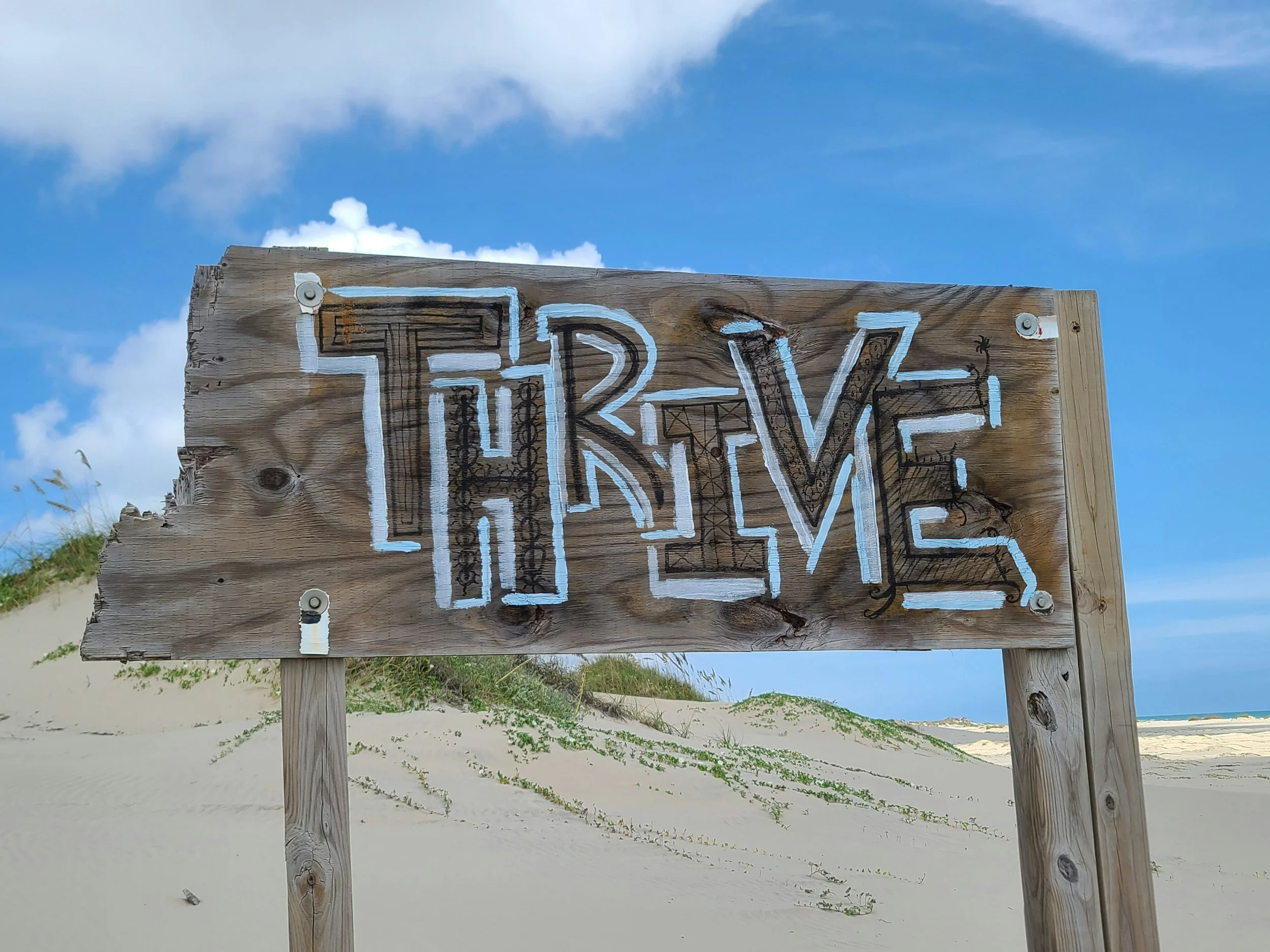The Power of Mentorship: Strengthening Careers and Solving Challenges Together
Published 21 November 2024
(In Ep #0 of the Professionall Pathways Podcast | Cal’s Journey into Teacher Education)
“A mentor that I had in my first five years of my career that I am so thankful to have had has to be Dr. Kathi Bailey. I think Kathi was influential for me not only because she was a phenomenal teacher but [because] she showed me how to go about being a leader in a way that was inspirational instead of intimidating. If I was experiencing a problem in class with a project or just with interpersonal problems, she would let me complain about the situation and then she would pause and ask ‘What do you want me to do? Do you want me to just listen and say nothing? Do you want me to give you advice on what I would do in this situation? Or do you want me to take action?’ That blew my mind! Not only was she offering to help but she was offering what is the best way for me to have help in that moment. That is just one way that she showed me how to be a leader.”
Mentorship is a cornerstone of growth in any profession, and education is no exception. The mentor-mentee relationship not only fosters professional development but also builds resilience and a sense of belonging. For educators, mentorship can be a transformative force, guiding them through challenges, inspiring commitment to the profession, and empowering them to make lasting contributions to their communities.
How Mentorship Strengthens Professional Commitment
Mentorship provides a safety net during the early years of teaching, often described as one of the most demanding phases of an educator’s career. Research indicates that strong mentoring relationships significantly reduce attrition rates among new teachers. In a longitudinal study by Ingersoll and Strong (2011), teachers with access to mentoring programs were less likely to leave the profession and demonstrated higher job satisfaction. These relationships help novices navigate the complexities of the classroom while instilling confidence and competence in their practice.
Mentors also benefit from these relationships. Serving as a mentor reinforces their own commitment to teaching by allowing them to reflect on their experiences and share the wisdom they've gained. This reciprocal dynamic fosters a deeper connection to the profession, reminding mentors of the impact they can make.
Solving Challenges Collaboratively
Teaching is rarely a solo endeavor. When mentees face obstacles—–whether classroom management issues, curriculum challenges, or work-life balance concerns–—a mentor's guidance can be invaluable. Real-life examples highlight how mentors help mentees transform struggles into learning opportunities.
For instance, a case study by Hobson et al. (2009) explored mentoring relationships in the UK education system. One novice teacher faced difficulties managing a particularly disruptive classroom. Through biweekly sessions, the mentor provided strategies, shared similar experiences, and even co-taught for a day to model effective techniques. This support not only improved the classroom environment but also bolstered the mentee’s confidence and problem-solving skills.
Building Lasting Professional Relationships
Mentorship often extends beyond practical advice to build meaningful professional bonds. These relationships can evolve into lifelong collaborations, offering a network of support that continues throughout an educator's career. The power of mentorship lies in its ability to humanize the profession, showing that even seasoned professionals once faced the same uncertainties.
For example, in Mentoring in Action: Guiding, Sharing, and Reflecting with Novice Teachers by Carol Pelletier Radford (2017), the author recounts how a mentor-mentee pair continued collaborating on innovative teaching projects long after their formal mentorship ended. Their relationship became a source of mutual inspiration, contributing to both their professional development and the school’s overall success.
Mentorship as a Tool for Problem-Solving
When educators collaborate with mentors to address challenges, they often arrive at creative solutions that would be harder to achieve independently. Mentors provide a sounding board for ideas and encourage reflection, which can lead to innovative problem-solving. This is particularly effective in addressing systemic issues, such as inequitable classroom practices or fostering inclusivity.
The Social and Emotional Impact of Mentorship
Beyond professional benefits, mentorship supports educators’ emotional well-being. Knowing there’s someone to lean on during tough times can prevent burnout and instill a sense of belonging within the teaching community. A mentor can help a struggling teacher see the bigger picture and regain their enthusiasm for the profession.
In education, mentorship is not just a one-time opportunity–—it’s a commitment to fostering a culture of collaboration and growth. As educators, investing in mentoring relationships strengthens not only individual careers but also the profession as a whole.
Six Suggestions for Building Strong Mentor-Mentee Relationships
Building a strong mentor-mentee relationship requires intentionality, trust, and shared goals. Here are six evidence-based suggestions to foster meaningful and productive mentoring relationships:
Establish Clear Expectations Early: Research emphasizes the importance of setting clear expectations at the start of the mentoring relationship (Eby et al., 2000). This includes discussing communication preferences, goals, and boundaries. By outlining mutual expectations, both mentor and mentee can align their efforts and avoid misunderstandings.
Prioritize Regular and Open Communication: Effective communication is foundational to successful mentorship (Ragins & Kram, 2007). Regular check-ins help maintain momentum and provide opportunities to address concerns or celebrate progress. Whether through scheduled meetings, emails, or quick messages, consistency builds a sense of commitment and reliability.
Focus on Mutual Learning: A great mentorship is not a one-way street. Research shows that mentees bring fresh perspectives and ideas, enriching the mentor’s professional growth as well (Ghosh & Reio, 2013). By fostering an environment where both parties can learn from each other, the relationship becomes dynamic and rewarding.
Encourage Active Problem-Solving Together: Mentorship often involves navigating challenges, from classroom management to career advancement. According to Johnson (2016), working collaboratively to brainstorm and implement solutions empowers the mentee while sharpening the mentor’s coaching skills. It also demonstrates how to approach problems constructively in real-world scenarios.
Promote Personal and Professional Development: Effective mentors look beyond immediate goals to consider the mentee’s long-term aspirations (Klinge, 2015). Encouraging professional growth through new opportunities, skill-building, and reflection can enhance the mentee’s career trajectory and job satisfaction. Additionally, discussing personal values and well-being helps mentees sustain their passion for their profession.
Celebrate Milestones and Achievements: Recognizing progress and successes, no matter how small, strengthens the mentor-mentee bond. Research suggests that celebrating milestones boosts motivation and reinforces positive behaviors (Allen et al., 2004). From acing a lesson plan to publishing a paper, these moments remind both mentor and mentee of the value of their partnership.
By applying these practices, educators can cultivate mentor-mentee relationships that not only address current challenges but also inspire lifelong growth and commitment to the profession.
Discussion Question
Have you benefited from a mentor, or have you had the opportunity to guide a fellow teacher? Share your experiences in the comments below and celebrate the power of mentorship!
Related Posts
-
Allen, T. D., Eby, L. T., Poteet, M. L., Lentz, E., & Lima, L. (2004). Career benefits associated with mentoring for protégés: A meta-analysis. Journal of Applied Psychology, 89(1), 127–136.
Eby, L. T., McManus, S. E., Simon, S. A., & Russell, J. E. A. (2000). The protege's perspective regarding negative mentoring experiences: The development of a taxonomy. Journal of Vocational Behavior, 57(1), 1-21.
Ghosh, R., & Reio, T. G. (2013). Career benefits associated with mentoring for mentors: A meta-analysis. Journal of Vocational Behavior, 83(1), 106-116.
Hobson, A. J., Ashby, P., Malderez, A., & Tomlinson, P. D. (2009). Mentoring beginning teachers: What we know and what we don't. Teaching and Teacher Education, 25(1), 207-216. Retrieved from https://www.sciencedirect.com/science/article/abs/pii/S0742051X08000816
Ingersoll, R., & Strong, M. (2011). The impact of induction and mentoring programs for beginning teachers: A critical review of the research. Review of Educational Research, 81(2), 201-233. Retrieved from https://journals.sagepub.com/doi/10.3102/0034654311403323
Johnson, W. B. (2016). On being a mentor: A guide for higher education faculty. Routledge.
Klinge, C. M. (2015). A conceptual framework for mentoring in a learning organization. Adult Learning, 26(4), 160–166.
Radford, C. P. (2017). Mentoring in Action: Guiding, Sharing, and Reflecting with Novice Teachers. Pearson Education. Retrieved from https://www.pearson.com/store/p/mentoring-in-action-guiding-sharing-and-reflecting-with-novice-teachers/P100001007119
Ragins, B. R., & Kram, K. E. (2007). The handbook of mentoring at work: Theory, research, and practice. SAGE Publications.




